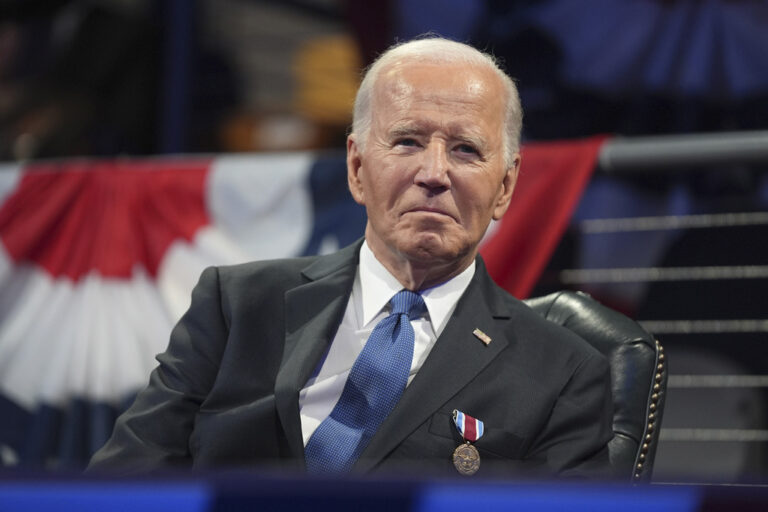 For many outside New York City, former Mayor Michael Bloomberg’s name is synonymous with a pair of political crusades: launching a national anti-gun campaign and taking on Big Soda.
For many outside New York City, former Mayor Michael Bloomberg’s name is synonymous with a pair of political crusades: launching a national anti-gun campaign and taking on Big Soda.
But the gun and public health positions his supporters have hailed as visionary — and, in some cases, have been adopted by municipalities nationwide — could prove to be hurdles for voters, particularly Republicans, if the business media mogul launches a third-party presidential bid.
For some, Bloomberg has been defined by the multi-million dollar National Rifle Association ad campaigns warning members that their right to bear arms was in jeopardy. Others remember the late night comics’ jokes about his fizzled effort to ban giant sodas.
Gun control is a hard sell with many Republicans as well as some independents and Democrats, meaning a huge swath of voters could be out reach for an independent candidacy that would need support across party and ideological lines to succeed. The billionaire’s team has said he’ll decide this month whether to run.
“These are major obstacles for him because they have come to define his nanny-state government beliefs,” said Republican national strategist Matt Mackowiak. “In the Republican primary, he’s as much of a punch line as any Democrat. His ideas are non-starters.”
GOING AFTER GUNS
His fight against guns has humble origins.
Back in 2001, the political novice only drew one reporter to cover his fledgling mayoral bid during a campaign stop in Queens. One man barked at the candidate: “What do you think of the Second Amendment?”
Bloomberg turned to the man and replied, “And that one is?” before his aides whisked him away.
Four years later, soon after he was elected to a second term, Bloomberg found himself in a Brooklyn emergency room as doctors tried in vain to save the life of a police officer who had been shot. The mayor recalled blood rising to the surface of the officer’s bulletproof vest as detectives examined it.
He used his 2006 inauguration speech to decry the flood of illegal guns on New York’s streets and to vow to curb “these instruments of death.” He founded the advocacy group Mayors Against Illegal Guns, which became Everytown for Gun Safety and has 3.5 million supporters.
“He learned that 90 percent of guns used in crimes on the streets of New York came from out of state,” said John Feinblatt, a senior aide during Bloomberg’s mayoralty and now head of Everytown. “Most mayors would have just focused on fighting that in New York City. This mayor took the fight national.”
Bloomberg repeatedly chided Congress and the White House for inaction, particularly after the Newtown, Connecticut, school shooting. He created the Independence USA anti-gun political action committee and over the last four years donated $55 million to 27 Democrats, 13 Republicans and six independent candidates as well as for 25 ballot initiatives across the country.
His favored candidate or initiative won 36 times out of 46, and he became one of the NRA’s favorite targets. Feinblatt credits the mayor’s group for getting companies such as Facebook to ban online private gun ads and for pushing six more states to pass background checks.
In an Associated Press-GfK poll in December, 82 percent of Democrats, 44 percent of independents and 40 percent of Republicans said gun laws should be stricter.
———
SMOKING, SALT, OBESITY
Bloomberg sees gun control and public health policy as falling under the umbrella of “preventable death.”
His first major health initiative was a 2003 ban on smoking at the city’s bars and restaurants, a move that was initially unpopular.
But after it took hold, the hospitality industry in the city surged by 50 percent and the ban was replicated in more than 500 cities across the country and several other nations.
Bloomberg’s City Hall rolled out one health initiative after another during his 12 years in office. Restaurants were assigned letter grades for cleanliness. Calorie counts were required to be placed on menus. And trans fats were banned in city restaurants, a move the Food Drug and Administration emulated on a national scale nearly a decade later.
But he was at times accused of overreach: A move to cut the amount of salt in packaged foods failed. And, infamously, an effort to ban supersize sodas was decried by many as a “nanny state” step and blocked in court, though it lives on as a joke for comics and conservatives alike.
“Oh, Bloomberg is not around, our Big Gulp is safe!” declared Sarah Palin, as she pulled out a giant soda to cheers in a 2013 speech to conservatives.
Others say his policy campaigns have made a difference. “He has been a transformative leader,” said Dr. Linda Fried, dean of Columbia University’s school of public health. “He has created a model for how to improve a city’s health.”
Bloomberg’s social policy, mixed with conservative economic touchstones, seems unlikely to be an instant hit with voters if he runs. More than six in 10 Americans surveyed in an AP-GfK Poll last week said they wouldn’t consider supporting him while nearly four in 10 knew little about him.
“All I know about this guy is that he tried to dictate how big a man’s soda could be,” said Joseph Schreiber, 73, a retired assembly line worker from Arlington, Texas. “I thought that was stupid. People have to make their choices.” And “if they get fat, they get fat.”
(AP)










